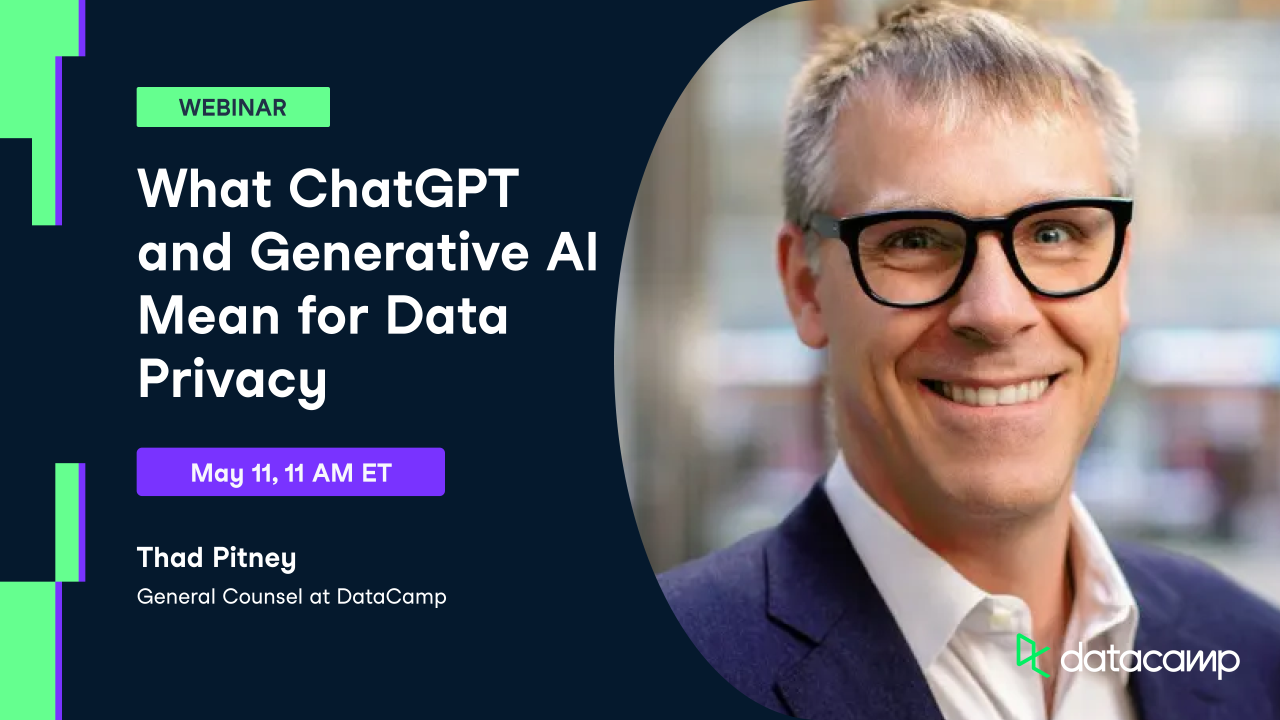Skip to main content





Related
webinar
What ChatGPT Enterprise Means for Your Organization
Richie Cotton, Data Evangelist at DataCamp provides an overview of the various use-cases of generative AI across different functions, and the key features of ChatGPT Enterprise.webinar
ChatGPT & Generative AI: Boon or Bane for Data Democratization?
In this session, Benn Stancil and Libby Duane Adams deep dive into how Generative AI promises to radically transform analytics workflows and democratize data work for all.webinar
Best Practices for Developing Generative AI Products
In this webinar, you'll learn about the most important business use cases for AI assistants, how to adopt and manage AI assistants, and how to ensure data privacy and security while using AI assistants.webinar
Increasing Data Science Impact with ChatGPT
Our panel of data science and AI experts will teach you how to integrate AI into your data workflows and unlock your inner 10X developer.webinar
RADAR: The Analytics Edition - ChatGPT & Generative AI: Boon or Bane for Data Democratization?
In this session, Benn Stancil and Libby Duane Adams deep dive into how Generative AI promises to radically transform analytics workflows and democratize data work for all.webinar
Scaling Enterprise Value with AI: How to Prioritize ChatGPT Use Cases
Learn to navigate privacy and security concerns, the ethical and compliance considerations, and the human factors to safely incorporate generative AI in your organization.Join 5000+ companies and 80% of the Fortune 1000 who use DataCamp to upskill their teams.
Loved by thousands of companies

